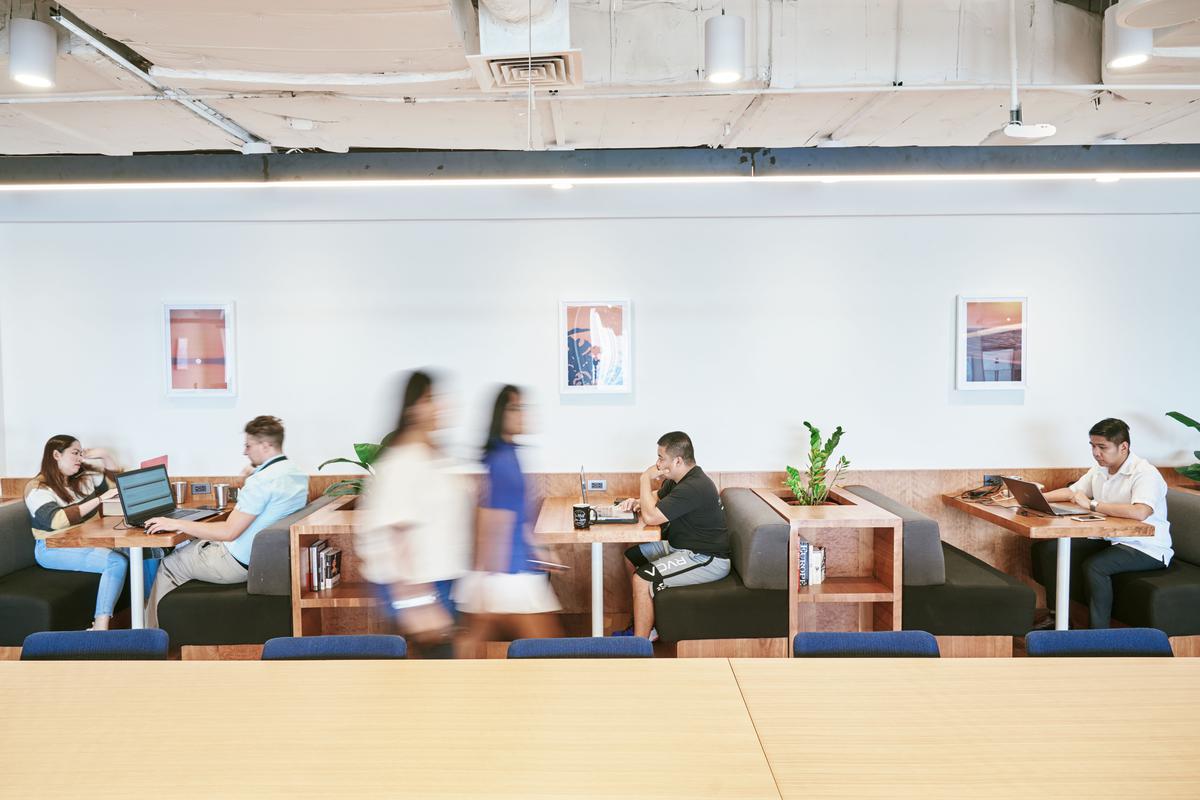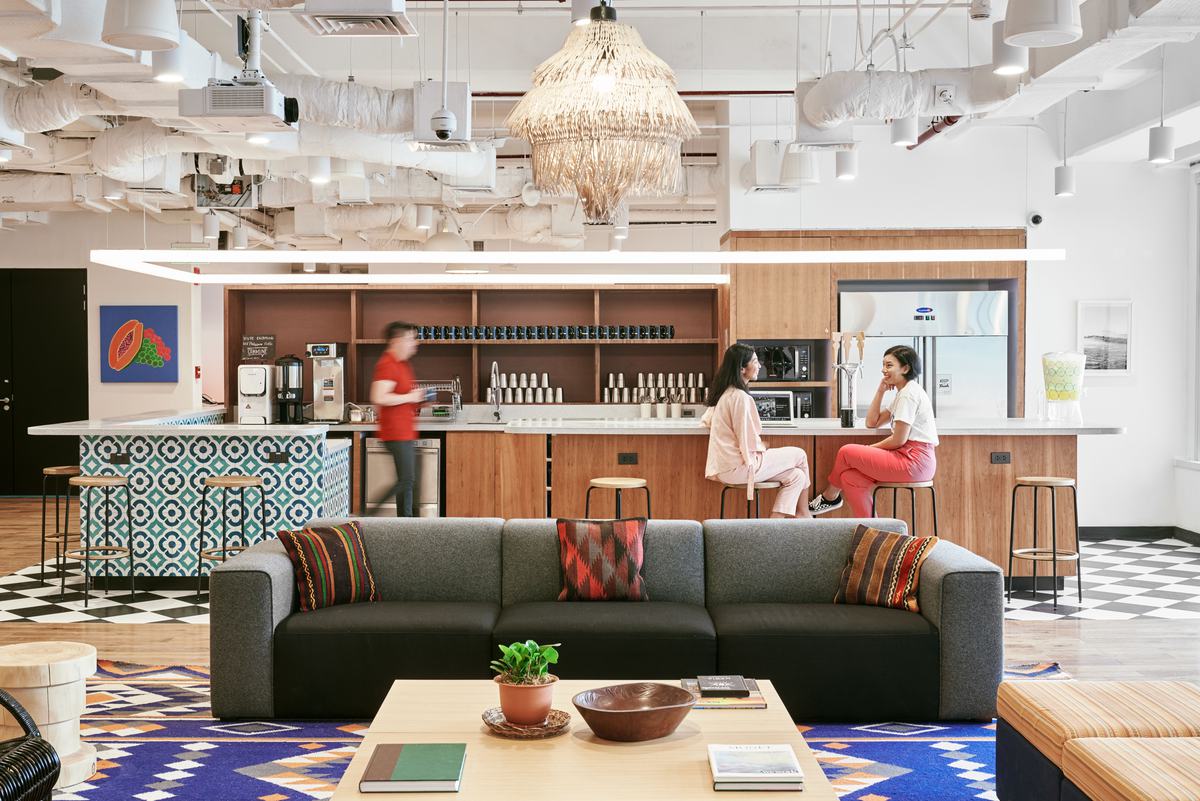The COVID-19 pandemic caused companies across the globe to adapt the remote working model or they have needed to make sure their workspace is a safe environment to ensure employees’ wellness and safety. Technology has without a doubt made this easier and more feasible. As the rest of the world gradually eases its COVID-19 measures, what can companies expect when the country scales back to operations?
For Turochas “T” Fuad, WeWork managing director for Southeast Asia and Korea, collaboration is a key element for work productivity and success. Now more than ever, partnerships and connections will become more important as companies will be focusing on economic recovery and returning to its growth momentum.
“I am encouraged by the speed and flexibility in which governments, business leaders, and companies have adapted during this challenging period from an operational standpoint. This has also allowed us to review how work operations can evolve to continue to support productivity, engagement, and innovation as we enter a new normal of professional distancing at workplaces,” Fuad said.
While working from home has brought a great deal of convenience, it has also highlighted issues ranging from the lack of conducive workspace, distractions at home, to decreased morale. Remote working as an option will be and should be encouraged as we ease back into operations post COVID-19, but it is beyond just working from home and rather how companies can support employees with the empowerment of space and professional distancing.
The new workspace
As companies across SEA make plans to scale their business operations beyond COVID-19 measures, employee engagement and productivity will remain key priorities. From helping them adapt to the new normal to motivating them to continue supporting business growth, companies will emphasize employee interactions and collaborations.
Returning to the workplace should not compromise one’s ability to practice distancing, however. Social distancing is sure to be an aspect companies will proactively emphasize and ensure. Companies will want to have multiple workspaces in the same vicinity to support their segregated workforce, e.g. alternate staffing or having or setting up their HQ in one building and have supporting functions in other WeWork locations in Manila.
“Having a workspace remains as a powerful tool to foster engagement, inspire innovation, and drive productivity. A well designed one will further elevate the work environment and experience for employees, promoting better collaboration, comfort and happiness in the workplace. It is now even more important to provide employees with the confidence of a workplace that prioritizes their health and safety,” Fuad shared.
Over the last few weeks, the WeWork SEA team has spent time reviewing feedback and working with industry partners and government bodies across health and safety, cleaning, construction, and design to install enhancements. From modifying shared spaces with staggered seating and buffer zones to heightened cleaning and sanitization measures, the focus will be on three key areas: prioritizing personal space, cleanliness, and behavioral signage.
The role of co-working spaces
The co-working ecosystem is a dynamic one, often characterized by its speed and savviness.
“WeWork has redefined the workspace over the years, reimagined for the way spaces are sourced, built and designed to ultimately bring people together and help members be successful,” said Fuad.
He added that the WeWork space design intends to achieve an elevated office environment and experience for the members, “promoting better collaboration, productivity, comfort and happiness in the workplace.”
While Manila is under the modified enhanced community quarantine, WeWork continued engaging its members by taking inspiration from its community element – arranging webinars and sessions with business leaders and members to sustain ongoing engagements and exchange of ideas.
“While distancing may be part of the new work order, our goal is to ease the transition back to the workplace by proactively revamping WeWork’s product to meet member expectations around social distancing and cleanliness. This allows us to focus on our ability to create an environment that facilitates connection globally in a thoughtful and user-friendly way,” Fuad said.
WeWork during the pandemic
The pandemic has also reinforced physical workspaces as essential in times of disruptive events for continuity of business operations. Beyond fostering collaboration and productivity, WeWork’s role is also to help members drive business efficiency.
“As many of our enterprise members have a global presence through us, they have been turning to us for counsel and guidance to navigate the evolving situation and ensure the safety of their employees across the region,” Fuad said. “We are also seeing an increase in proactive conversations from our members and non-members to better understand the importance and relevance of space-as-a-service as part of their business continuity planning strategy.”
Flexible workspaces give enterprises of all sizes the ability to scale the amount of space needed. COVID-19’s impact on the economy has shown the need for organizations to take on a conservative approach when it comes to operational needs such as lease flexibility. In fact, larger enterprises are future-proofing operational efficiencies by innovating their global real estate strategy and forging strong partnerships with flexible workspaces.
As the Philippines continues to attract more interest from global and regional companies, they turn to WeWork to address their real estate needs – with their speed-to-market up to three times faster than traditional options and with end-to-end solutions from IT, employee experience to security and now post-COVID 19 solutions. Up until this month, WeWork Philippines has been able to track a 25% increase in enterprise members from 2019, being one of the markets with the highest growth across Southeast Asia, next to Malaysia.
With the new work order upon us and not expected to go back the way it was, strict protocols will always come with innovative approaches toward collaboration and productivity when it comes to having common workspaces. “We will always be driven by the concepts of community and connection and ready to pivot to what companies need. This is what truly makes us WeWork,” Fuad ended.

